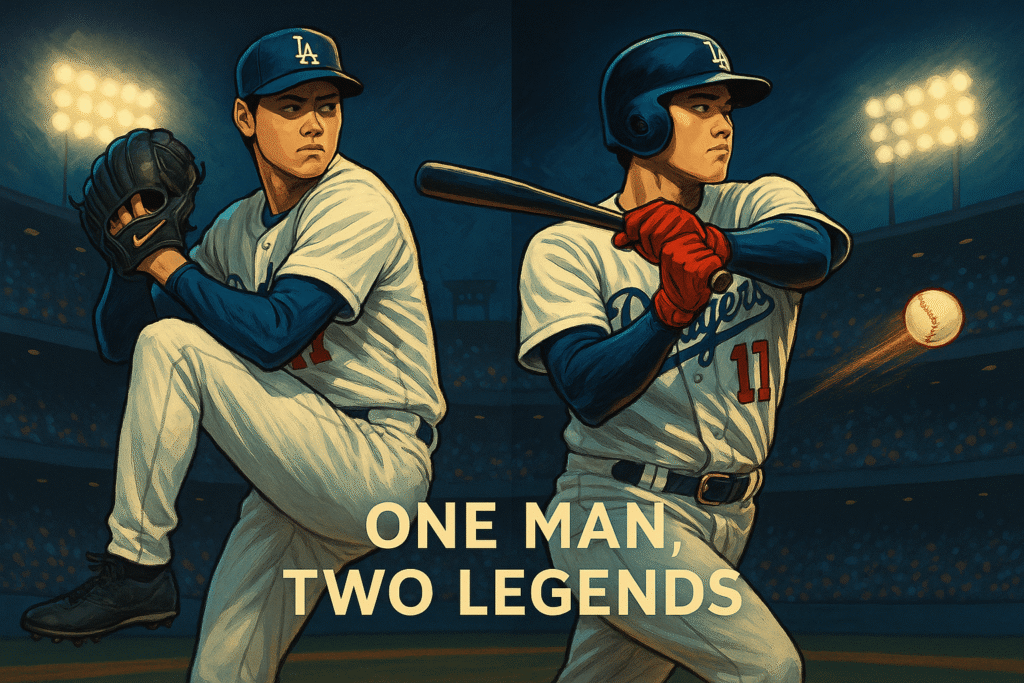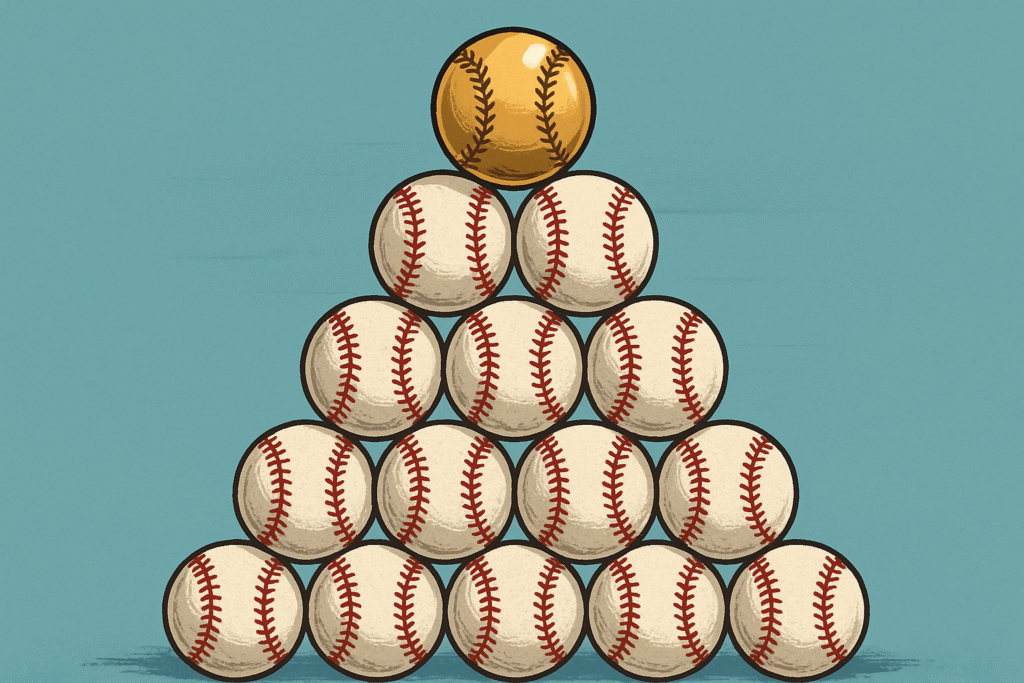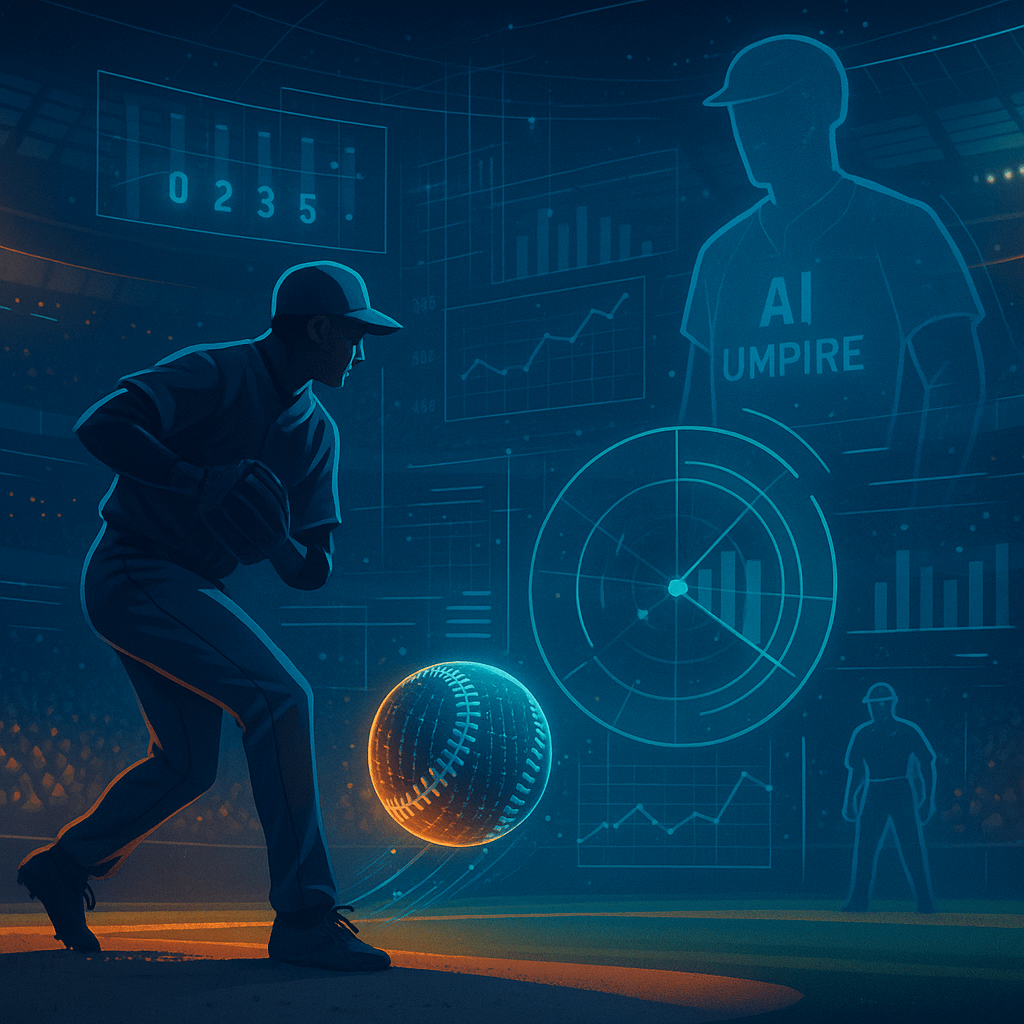“Skill is measured by numbers. Fame is measured by stories. Salary is the sum of both.”

In 2025, Major League Baseball (MLB) still stands as the most financially generous sports league in the world.
It’s a system built on precision, performance metrics, and an almost scientific approach to human ability.
Yet, in the sport most obsessed with statistics, one truth remains:
salary doesn’t always follow performance.

💵 1. The MLB Salary Pyramid in 2025
📊 Data source: Spotrac, Forbes (as of the 2025 season)
| Player | Team | Annual Salary (USD) | Note |
|---|---|---|---|
| Shohei Ohtani | LA Dodgers | $70 million | Record-breaking $700M deal over 10 years |
| Max Scherzer | Texas Rangers | $43 million | Nearly 40, still top-tier earnings |
| Aaron Judge | NY Yankees | $40 million | The face of New York baseball |
| Mike Trout | LA Angels | $37 million | Injury-prone, but remains symbolic |
| Gerrit Cole | NY Yankees | $36 million | Cy Young-caliber, high salary efficiency |
The top 5% of MLB players now take home over half of the league’s total payroll,
while nearly 80% earn less than $1 million per year.
It’s the ultimate expression of a “superstar economy”—where a handful of names shape not just team success, but media rights, merchandise, and regional revenue.
📈 2. Performance Is Measured by Data — Salaries Are Paid for Stories
Baseball is the most data-driven sport on Earth.
Every swing, pitch, and reaction time can be quantified: AVG, OPS, WAR, ERA, WHIP.
But despite the endless spreadsheets, contracts are increasingly shaped by narrative and visibility.
“The numbers make you good.
The moments make you rich.”
— Sports Illustrated, 2025
Shohei Ohtani’s average WAR over five seasons sits at 8.9, among the highest in MLB history.
Yet his record-breaking contract wasn’t signed merely for that—
it was his dual-role legend as both pitcher and hitter that shattered every financial precedent.
In today’s baseball economy, data proves ability, but story amplifies value.
🌟 3. “Payroll Capitalism” — Fame and Market Power in Disbalance
MLB has no salary cap, and that changes everything.
Wealthier teams buy more stars, widening the gap between markets.
| Club | Total Payroll (2025) | Market Value | Fan Base (est.) |
|---|---|---|---|
| NY Yankees | $298 million | $7.2 billion | ~30 million |
| LA Dodgers | $282 million | $6.8 billion | ~25 million |
| Oakland Athletics | $70 million | $1.1 billion | ~3 million |
This structure has given rise to what economists call “payroll capitalism”—
an ecosystem where money can purchase competitiveness, at least temporarily.
But recent seasons have reminded fans that money can’t buy chemistry or destiny.
The 2023 Texas Rangers, for instance, won the World Series with a mid-tier payroll,
reviving the “Moneyball paradox” that success isn’t always proportional to spending.
⚙️ 4. The Paradox of Value — When Low Pay Means High Efficiency
According to modern sabermetrics, the best “performance value per dollar” often comes from young, undervalued players:
| Player | Team | WAR | Salary (USD) |
|---|---|---|---|
| Gunnar Henderson | Baltimore Orioles | 6.8 | $720K |
| Julio Rodríguez | Seattle Mariners | 7.1 | $2.2M |
| Bobby Witt Jr. | Kansas City Royals | 6.5 | $1.1M |
“The best values are hidden in the minors, not the majors.”
— The Athletic, 2024
So while the stars dominate headlines and balance sheets,
the true efficiency champions earn one-tenth as much.
This isn’t just financial irony—it’s proof that baseball’s hidden gems
still drive competitive balance in a league obsessed with super salaries.

🔮 5. The Future of Pay: AI, Data, and the Fan Economy
Over the next decade, baseball’s pay structure will likely evolve in three radical directions:
- AI-Powered Performance Contracts
- Salaries dynamically adjusted based on biometric and in-game data.
- “Pay for Potential” models already under test.
- Fan-Driven Bonuses
- Social mentions, engagement metrics, and merchandise sales directly tied to bonus pools.
- Turning popularity into tangible revenue.
- Smart Revenue-Sharing Deals
- Blockchain-enabled contracts distributing streaming and NFT profits to players.
- Blending performance and engagement into one pay metric.
🧩 Conclusion — The Most Human Logic in a Sport of Numbers
Baseball may be a game of numbers, but its salary logic remains deeply human.
Every pitch is tracked, every stat recorded—
yet the money still follows charisma, narrative, and emotional resonance.
“Moneyball taught us how to measure value.
Ohtani taught us why some values can’t be measured.”
— The New Yorker Sports Essay, 2025
In the end, MLB salaries aren’t just payments for skill.
They are investments in myth—
because in baseball, legends pay better than averages.
